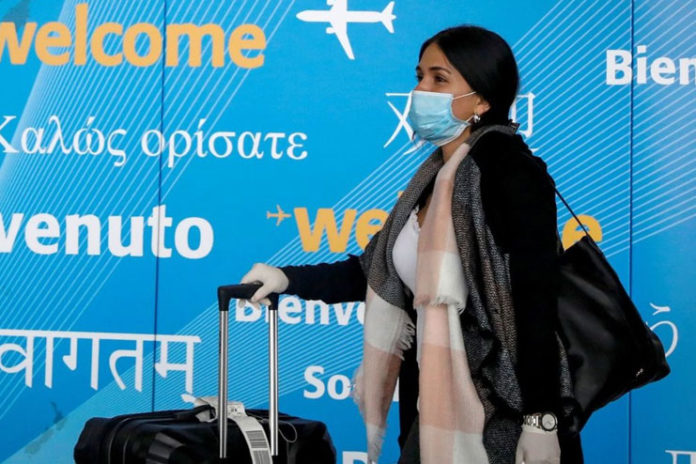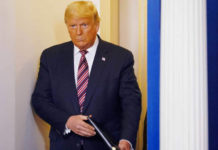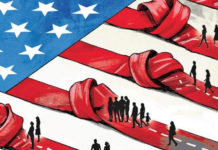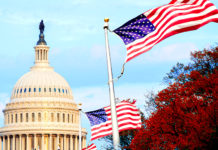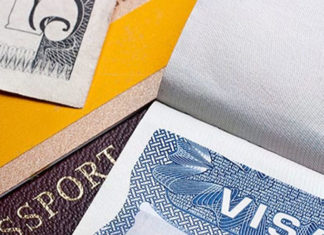Amidst all the licensed physician in the US, a quarter of them are immigrants. With the new executive law in place by the Trump administration citing the temporary ban on the H-1B visas, several of the immigrant doctors are afraid of deportation.
Citing the example of Dr. Parth Mehta, he moved to his basement in early March, he wrote goodbye letters and even put together an emergency binder containing all the important information for his family.
These actions have been taken by him in lights of the Covid-19 impacts and the heightened possibility of him dying on his job because of the infection.
The emergency binder that he created includes log-ins for all of his social media accounts, phone numbers of his family members and information regarding all the investments that he has made so far.
The binder also includes all the necessary details when it comes to deportation because in case he dies, his wife and two children will most likely be deported to India.
Mehta, a hospitalist, is one of the 127,000 immigrant physicians in the United States. Of all the immigrant doctors, the majority come from India, Caribbean, Pakistan, Philippines and Mexico.
“It’s not just a tangential part of health care access that we’re talking about. It’s a pretty core part,” said an immigrant attorney.
Physicians and nurses like Mehta are working in US on their H-1B visas and in case they become disabled or even die, they and they family will be faced with deportation. If an H-1B visa holder dies, the H-4 dependent family members become undocumented and are instantly subjected to the risks of removal.
This is a situation majority of the immigrant physicians and their families face more often than not.
According to U.S. Citizenship and Immigration Services, majority of the H-1B visas that have been tfilled in the US has been by Indian amidst the year of 2007-2018. This accounts for 2.2 million Indian immigrants out of the total 3.5 million.
There are doctors that have been working on these temporary visas for over 20 years now. So, there are situations that should something happen to the individual, their family won’t be able to potentially carry forward being in the country and will likely be deported. So, these doctors have such concerns is justified.
The only way to recover from this situation is to work through with legislation.
Physicians for American Healthcare Access (PAHA) are a group that works to make healthcare more accessible to the underserved communities in US. They are the group who are consistently advocating for legislative solutions for these healthcare professionals.
One of the primary bills that PAHA is advocating for is a bipartisan bill known as the Healthcare Workforce Resilience Act. If the bill is passed, it would allow 40,000 unused immigrant visas and allocate them to the healthcare professionals, both doctors and nurses to come work in US and help with the fight against Covid-19.
This bill is likely going to help a number of the immigrant physicians as it would clear out a lot of the green card backlog but that is just about it. It doesn’t address any of the other problems.
“It’s an occasion to rejoice a little bit that yes, something is being done, but it by no means is enough,” said Dr. Sanjeev Alur, president of PAHA.
He further emphasised that the bill doesn’t protect the immigrant medical trainees that are in US on the J-1 exchange visitor visas. The J-1 trainees in some parts in US have been allowed to help with the fight against Covid-19.
Every immigrant attorney and expert have clarified saying that the immigrant doctors and nurses in US are a necessity to fill the requirements of the shortages in the country. This is an issue predominantly in the rural areas which face a harder time in recruiting doctors.
If the same situation prevails, US will likely experience a shortage in the availability of physicians by 2032.
It is not possible to end the need for the immigrant doctors with the snap of the fingers.
Mehta, the physician we talked about in the beginning of the article said that one of his biggest fears is to somehow become disable or even experience death in here. He is more worried for his family who are not secured under the visa.
He further emphasised on what is the point of praising the immigrant frontline workers if they hold no physical value in the legislation in case they become decapitated.
“It’s kind of weird that we are considered essential when it comes to saving lives, but we are considered nonessential when it comes to immigration purposes, and your family faces the risk of deportation if you die,” Mehta said.



































